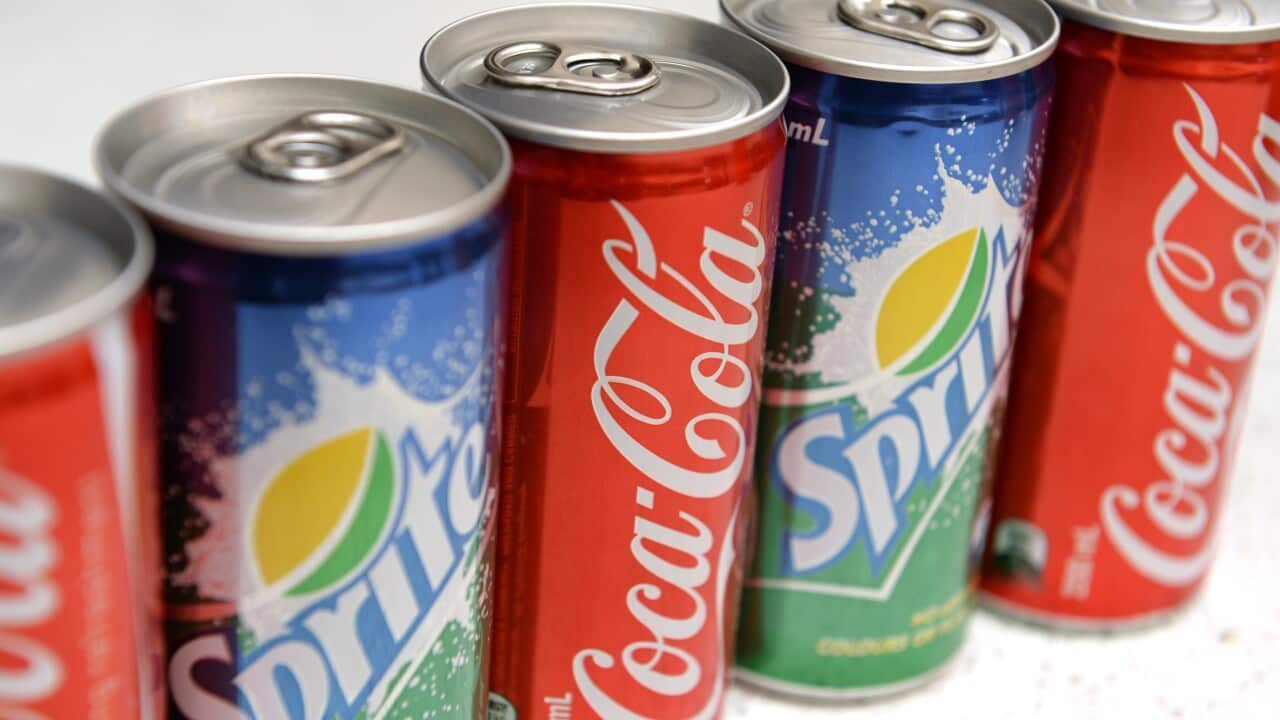Sugary drinks, cereals, and ready-made meals are back in the spotlight after research suggested eating more of these foods is associated with a higher risk of over 30 damaging health outcomes.
The review, published in the BMJ medical journal this week, looked at the available evidence linking ultra-processed foods (UPFs) to poor health.
Researchers found "consistent" evidence that a diet high in UPFs was associated with increased risk of outcomes including major heart and lung conditions, anxiety, type 2 diabetes, and early death.
It added a limitation of the study was a "high-level overview" and that "this raises the question of whether the associations between exposure to ultra-processed foods and poorer health are due to an overall unhealthy dietary pattern".
UPFs make up a growing proportion of our daily energy intake — up to 42 per cent in Australia.
So, what are ultra-processed foods, what does the research say, and what specifically should you avoid?
What are ultra-processed foods?
Broadly speaking, UPFs are foods that don't occur naturally, according to Daisy Coyle, a practising dietitian and research fellow at the George Institute for Global Health.
"Ultra-processed foods are basically designed and then made in a factory using multiple processing methods," she said.
"They also often contain ingredients that we don't typically use, or even find, in our kitchens at home — things like colours, flavours, additives, preservatives and emulsifiers."
She said these products are also typically high in salt, sugar and saturated fats — and low in vitamins, minerals and fibre.

Many breakfast cereals are ultra-processed. Source: Getty / Grace Cary
"It's a big problem. We buy a lot of [it] and many people might not realise that it's ultra-processed."
Both Coyle's work and research published this week defined ultra-processed foods according to the NOVA system, which classifies food according to the way it's processed. Other classification systems are based on the food's nutrient content.
According to the latter research, the share of dietary energy from UPFs across high-income countries ranges from 42 to 58 per cent (in Australia and the United States), to as low as 10 and 25 per cent in Italy and South Korea.
The availability and variety of these products sold has "substantially and rapidly increased" — particularly in many highly-populated low and middle-income nations.
What does the latest research say about UPFs?
To compile the recently published BMJ study, Australian and international researchers carried out an "umbrella" review, combining the results of 45 meta-analyses and 14 review articles involving almost 10 million participants.
Researchers found higher exposure to ultra-processed foods was consistently associated with an increased risk of 32 health outcomes.
There was "convincing" evidence of a 50 per cent increased risk of cardiovascular disease-related death, a 48-53 per cent higher risk of anxiety and common mental health disorders, and a 12 per cent greater risk of type 2 diabetes.
"Highly suggestive" evidence indicated a 21 per cent greater risk of death from any cause, and associations with obesity, sleep problems and depression.
The researchers noted evidence for associations with asthma, gastrointestinal health and some cancers remained limited.
Coyle said the review "highlights a troubling reality".
"Previous research has mostly focused on one health outcome, so this has been a really interesting piece where they have brought it all together," she said.
Helen Truby, a professorial research fellow at the University of Queensland, said while the research provides "consistent direction" on the relationship between UPFs and poorer health outcomes, evidence is not always strong and "relationships do not prove causality".
The researchers acknowledged that such a review can only provide a “high level overview” of evidence, and that further randomised trials are needed to establish causality.
Is there a safe level of ultra-processed foods you can eat?
As research is still in the early stages, we don't know if there's a safe level of ultra-processed foods you can eat, Coyle said.
"We know there is an association. We know that as a group, ultra-processed foods are damaging to health. We don't know exactly what that tipping point is," she said.
"We also don't know what exactly is making ultra-processed foods bad for us. We know it's the element of processing combined with the fact that these foods are typically unhealthy in terms of their nutrient profile, but we're still teasing out what exactly are the bad bits."

Experts say more than half the food bought from supermarkets in Australia is ultra-processed. Source: Getty / Jacobs Stock Photography Ltd
What are the main ultra-processed foods to avoid?
Coyle said researchers are looking at "the main culprits" when it comes to ultra-processed foods.
The recent review found certain types of UPFs showed lower health risks, such as ultra-processed cereals, wholegrain bread, packaged sweet and savoury snacks, yoghurt, and dairy-based desserts.
"On the other hand, you have things like sugary drinks, processed meats, sauces, spreads and condiments," she said.
"They're the ones that come up highest in terms of being the most harmful ultra-processed foods. They would be the ones to avoid, and also limit in your diet."
How else can people limit their intake of ultra-processed foods?
If you're feeling overwhelmed about working out what is or isn't ultra-processed, Coyle suggested asking questions such as:
- Is this naturally occurring?
- Could I make this at home?
She also advised people to read ingredient lists on labels, adding that products with five or more ingredients are likely ultra-processed.












